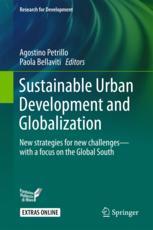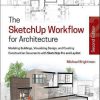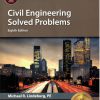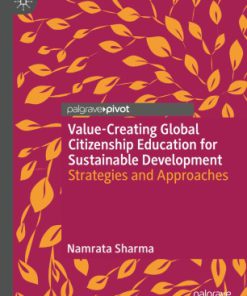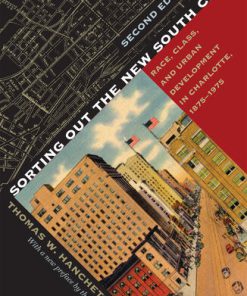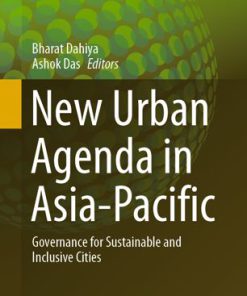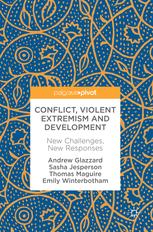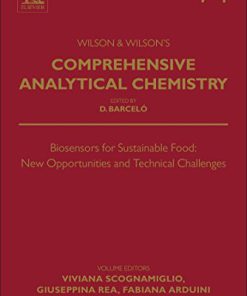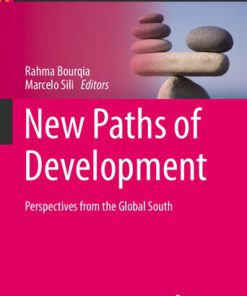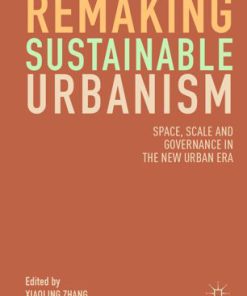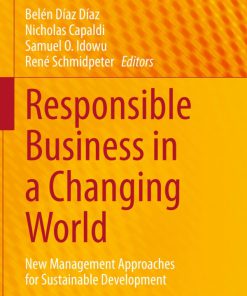Sustainable Urban Development and Globalization 1st Edition by Agostino Petrillo,Paola Bellaviti 331961987X 9783319619873
$50.00 Original price was: $50.00.$25.00Current price is: $25.00.
Sustainable Urban Development and Globalization 1st Edition by Agostino Petrillo,Paola Bellaviti – Ebook PDF Instant Download/Delivery:331961987X,9783319619873
Full download Sustainable Urban Development and Globalization 1st Edition after payment
Product details:
ISBN 10:331961987X
ISBN 13: 9783319619873
Author:Agostino Petrillo,Paola Bellaviti
This book equips readers with a deeper understanding of the challenges posed by radical socioeconomic, environmental, and cultural changes due to globalization and describes effective, sustainable solutions to these challenges. The focus is especially on the rapid urbanization processes in countries of the Global South, which are giving rise to dramatic new problems of spatial and social inequality and difficult environmental challenges in relation to climate change. Readers will gain skills and knowledge that will help them to develop an integrated, multidisciplinary approach to planning, design, and management of urban settlements and territories in contexts with a high level of social, economic, territorial, and landscape vulnerability. The coverage includes, for example, strategies to promote social inclusion, improve housing quality, ensure adequate education, protect cultural heritage, enhance risk management, and address issues in the food-energy-water nexus. Among the authors are leading experts from the Polytechnic University of Milan, where a multidisciplinary set of studies and research projects in the field have been undertaken in recent years.
Sustainable Urban Development and Globalization 1st Table of contents:
1 Development Against Sustainability? Marrakech as a Case Study
Abstract
1 Development Against Sustainability? A Heritage to Be Interpreted and City Ideas
2 Inhabitants
3 Outside the Medina: La Ville Nouvelle, or What Remains of It
4 Outside the Nouvelle Ville, Between Resorts and Gated Communities
5 The “Relations System” in Marrakech
6 Landscapes
References
2 Metropolitan Public Realm Frameworks for Coastal East African Urbanization: The Case of Malindi Wa
Abstract
1 Coastal East Africa Towards a Livable Low-Carbon Urbanism
2 East African Urbanism: Cosmopolitism and Inequalities
3 An Inclusive Perspective: Bringing Informality on the Map
4 Public Realm Adaptive Frameworks: Socio-Ecological Infrastructure as Metropolitan Ordering Tools
5 Drafting a Methodology: Interscalar Mapping and Envisioning Scenarios
6 A Case Study: Malindi Waterfront as Socio-Ecological Infrastructure
6.1 Malindi
6.2 The Competition Proposal
6.3 Results and Remarks
7 Challenges
Aknowledegments
References
3 Mobile Urbanity in Southern Africa. The Socio-Spatial Practices of Informal Cross-Border Traders B
Abstract
1 Introduction
2 Toward the Conceptualization of ‘Mobile Urbanity’
3 Tracing the ‘Subjects’
4 The Mukhero Practice
5 Findings: The Translocal Urbanity of the Mukhero
6 Conclusion
Acknowledgements
References
4 Humanizing Urbanism. On Embracing Informality and the Future of Johannesburg
Abstract
1 Divide et Impera
2 The Hidden Face of a City of Cities
3 Informality and the (s)Pace of Life
4 Architecture of Segregation, Re-Segregation, or Integration?
5 Sweep the Poor Out: New Mayor, Old Story
6 A City at the Crossroad: From Housing the Poor to Building a Humane City
References
5 Urban Planning in Islamabad: From the Modern Movement to the Contemporary Urban Development Betwee
Abstract
1 The Idea of the New Pakistani Capital
2 The Plan and the Reality
3 After Doxiadis
References
6 Pacification of Favelas, Mega Events, and the Creation of New Inequalities in the Global South: Th
Abstract
1 Rio de Janeiro: Securitization in Place
2 Being Less Violent and More Competitive in the Global Arena
3 Compete Globally, Lose and Win Locally
References
7 The Role of State Involvement in Slum Improvement: A Critical Examination of Cofopri Approach into
Abstract
1 Introduction
2 Formalization in Latin America
2.1 Legal Recognition
2.2 Urban Upgrading in situ
2.3 Urban Redevelopment
3 COFOPRI and the Formalization Process
3.1 Actors and Roles
3.2 The Campaigns and the General Strategy
3.3 The Procedures for Land Tenure Regularization
3.4 The Results
4 From Informal to Formal Settlement: A.H Cantoral
4.1 SocioEconomic and Urban Land Situation Before Cofopri
4.2 Cofopri’s Intervention
4.3 Changes After Cofopri’s Intervention
4.4 Interview to the Founder and Leader of A.H. Cantoral
5 Conclusion
References
8 Undergrowth Urbanism: The Role of User-Generated Practices in the Informal City. A Methodology for
Abstract
1 Observing the Informal City: The Case of Paraisópolis
2 Understanding the Informal City: A Methodology for Analysis and Intervention
2.1 Application of the Method
2.2 Outcomes and Observations
References
9 Share for Care. Communication Technologies and Social Inclusion for Empowerment in Guayaquil, Ecua
Abstract
1 The Informal Settlements in Guayaquil
2 The IMPARAR Project: Context, Methodology, Objectives
3 “Share for Care”
4 Share for Care Components: Digital Tool System
5 Share for Care Components: Community-Based Organization
6 Discussion
References
10 Enhancing Participation Through ICTs: How Modern Information Technologies Can Improve Participato
Abstract
1 Introduction
2 Basic Theoretical Concepts
2.1 The Sustainable Development
2.2 Participation and Empowerment
3 Methods and Techniques for the Participative Use of ICT Technologies
3.1 ICT Systems for Participation and Empowerment
3.2 ICT to Improve Local Knowledge Involvement
3.3 Public Participatory GIS
3.4 Human Computation and Participatory Sensing
3.5 Participative Use of ICT: The Crowdmapping Example of OpenStreetMap
4 Case Studies
4.1 Participatory GIS for Water Management in Koligulu
4.2 La Cuidadora
5 Discussion
6 Conclusions
References
Design Strategies and Building Techniques for Development in Marginal and Rural Areas
11 Architectural Design in the Cities of the Global South
Abstract
1 Introduction
2 The Cities of the Global South
3 An Ecosystem of Populations and Identities
4 Architectural Design as an Open Process
12 Bioclimatic Design for Informal Settlements
Abstract
1 Bioclimatism for Informal Settlements
2 Views About the Role of Spontaneity
3 The Role of Environmental Simulation
4 Conclusive Remarks
References
13 Housing in African Rural Contexts: The Nubian Vault. Opportunities for the Economic Market in th
Abstract
1 Rural Housing in West Africa: General Conditions
2 Rural Housing: The Rural Construction Market in Mali and Burkina Faso
3 Materials and Appropriate Techniques
4 Rural Housing: A Possible Solution, Process NV
Appendix: The Nubian Vault. Criteria—By the Nubian Vault Association
A Roof: The Nubian Vault Technique
A Skill: NV Masons
A Market: NV Housing
Technical Overview
14 National Public Primary Schools Strategic Planning: A Key Factor to Ensure Quality Education Enro
Abstract
1 The Issue at Stake
2 State of the Art
3 Innovative Approaches and Their Limitations—The Child-Friendly Schools (CFS) Experience
4 A Proposed Solution
References
15 The Tourism as Local Development Leverage: The Restaurant/Guest house of Olga’s and the Profess
Abstract
1 Introduction
2 The Project Area: Livingstone and the Victoria Falls
3 A Short History
4 About YCTC
5 Project Highlights
6 The Architectural Project
7 Olga’s Italian Corner Today
7.1 The Diocese Supervision
7.2 The Financial Contribution to YCTC
7.3 Who Are the Guests of Olga’
8 Why Olga’s Italian Corner Succeeded
9 Conclusion
References
16 The Mantra of Modernity
Abstract
1 Technocracy
2 Hygienism
3 Formal Reduction, Functionalist Aesthetics
4 Cost-Effectiveness
5 Communitarianism
References
Protection and Enhancement of Cultural Heritage Amid Conservation and Development
17 Research, Interventions and Training for Cultural Heritage Safeguard and Enhancement. Lesson Lear
Abstract
1 Foreword—Armenia, a Brief Outline
2 The Discovery of Armenian Heritage: 1965–1988
3 The Interventions for the Safeguard of Armenian Heritage: 1988/91-2009
4 The Focus on Training
4.1 The Project Restoration Training and Support to Local Institutions for the Preservation and Cons
4.2 The Training Project. Follow-up
4.3 The Erasmus Plus Program. A Chance to Continue “Education”
5 Working for the World Bank for the Safeguard of Armenian Heritage. The Master Plans for the Monast
5.1 Context and Objectives
5.2 Working Methodology and Project Proposals
5.3 Some Final Considerations
6 Learning by Doing
6.1 Lesson Learned
7 New Perspectives of the International Cooperation for Armenian Heritage
Acknowledgements
18 Landscape Quality and Multifunctional Agriculture: The Potential of the Historic Agricultural La
Abstract
1 Introduction
2 How Can We Guarantee a Future for Traditional Agricultural Landscapes?
3 The Agricultural Landscape in the Hui Yang Region: Proposal for a Peri-Urban Farm Park
References
19 Cultural Heritage for Urban Regeneration. Developing Methodology Through a Knowledge Exchange Pro
Abstract
1 The Role of Cultural Heritage in the Cities Regeneration
2 Historic City Conservation and Urban Regeneration: An Interdisciplinary Project
2.1 Lay the Bases for the Knowledge Exchange: Practical Issues and Tools
2.1.1 Comparing Experiences: Three Italian Case Study
2.1.2 Searching for the Potential of Eleven Guest Cities: Factsheets and Questionnaire
2.2 Sharing the Knowledge: The Seminar Event (Urban Design Charrette)
2.3 Synthesis Time: Diagnostic Tool and Pilot Project
3 Some Provisional Conclusions
Acknowledgements
20 Learning by Practice from an Early Researcher Perspective. Investigating Widespread Heritage in T
Abstract
1 Introduction
2 Shkodra: (Re)Discover and Valorisation of a Multifaceted Heritage in the North of Albania
3 Tutoring On-Field: A Didactic Experience in the Walled City of Stari Bar
4 Changing Directions: Acquiring Knowledge from a Different Perception
5 Learning by Practice. Some Remarks and Open Questions
Acknowledgements
21 Minor Settlements: Setting up a Network of Creative and Sustainable Communities
Abstract
1 Introduction
2 The Rationale of the Project
3 Reinventing Territories
4 The Selection of “Relevant Cases”
5 The Selected Settlements
5.1 Inventing an Original Role for the Future
5.1.1 Gavorrano—From the Mining Crisis to Astrophysics and Space Industry
5.1.2 Gagliato—Nanotechnologies for Medicine
5.2 How to React to a Big and Unexpected Economic Opportunity
5.2.1 Shuan Wang Cun—The Advantage of Selling online
5.2.2 Rakhigarhi—How to Protect Its Own Identity in a Process of Substantial Change
5.3 Models of Environmental Balance and Control
5.3.1 The Satoyama and Satoumi Experience
5.3.2 Gerfalco—Rediscovering Silence
5.4 The Need for Networks
5.4.1 The Local Action Group (GAL) Tirrenico in Sicily
6 Concluding Remarks
References
22 The Heritage Value of the Craft Sector in Fast-Growing Cities
Abstract
1 Introduction
2 Methodology
3 Handicrafts: Place and People
4 Handicraft at the Core of the Indian National Development Programme
5 Heritage Value of Handicraft Sector at Risk to Boost Economic Development
Acknowledgement
References
Integrated Strategies to Reduce the Territorial Risks
23 Resilience Thinking as a Useful Approach to Reduce the Territorial Risks
Abstract
1 Introduction
2 The Characters of Resilient Thinking
2.1 Definition of Resilience
2.2 Resilient Capacity Analysis Criteria
3 Criteria for a Resilient Approach to Reducing Territorial Risks
3.1 Coping Capacities
3.2 Adaptive Capacity
References
24 New Strategies and Four-Layer Approach for Disaster Risk Management in Complex City Environments
Abstract
1 Introduction
2 How to Deal with a Complex City System: Agent Perspective and Four-Layer Approach
2.1 Spatial Layer
2.2 Organizational Layer
2.3 Tactical Layer
2.4 Public Layer
3 Discussion: Interaction Between Layers
4 Final Thoughts
References
25 The Economic Impacts of Natural Hazards: Lessons Learnt from the PDNA International Damage Assess
Abstract
1 Introduction
2 Recognize and Measure the Impacts of Natural Catastrophes from an Economic Perspective
3 The PDNA International Damage Assessment Project After the Haiti Earthquake in 2010
4 Conclusions
References
26 Perceiving Urban Resilience Within Post-quake Recovering Processes. An Experimental Approach for
Abstract
1 Introduction
2 Aim of the Study
3 Background and Previous Practices
3.1 Urban Agriculture … from Crisis to Development
3.2 Rainwater Harvesting … from Scarcity to Storing Benefits
3.3 Energy Production … from Central to Distributed System
3.4 Common Spaces … as Tools for Community Resilience
3.5 In Situ Temporary Housing Installations …Opportunities or Threats
4 Study Case: Finale Emilia After the Earthquake of Emilia Romagna in 2012
4.1 Hypothesis
4.2 Methodology
4.3 Application
5 Discussion
6 Conclusion
References
27 Climate Change and Heat Waves in Colombia. Possible Effects and Adaptation Strategies
Abstract
1 Introduction
2 Characters and Effects of the Heat Waves in Colombia
2.1 Coastal Landscape
2.2 Mountain Landscape
2.3 Plain Landscape
3 Adaptation Strategies and Actions to the Heat Waves
3.1 Economic-Financial Strategies
3.2 Social Strategies
3.3 Physical Strategies
4 Conclusions
References
Managing the Agro-urban System and the Food-Energy-Water Nexus
28 Social–Ecological Implications of the Quinoa Market Teleconnections: Intervention Criteria on t
Abstract
1 Introduction
2 The Quinoa Golden Age: From Subsistent Food to Precious Global Commodity
2.1 Case Study Area
3 Main Transformations in the Study Area
4 Adaptation Measures in the Area of Tomave
5 Challenges and Opportunities for Adaptive Capacity of Local Communities
References
29 Socio-Environmental Effects of Large-Scale Land Acquisition in Mozambique
Abstract
1 Introduction
2 Methods
2.1 Crop Water Requirement and Actual Use
3 Results
4 Discussion and Conclusion
References
30 The Narrative Structure of the Agro-Urban Metropolitan Territory. The Metropolis as Hypertext for
Abstract
1 Metropolitan Narrative
1.1 The City Narrative in the Past
1.2 Comprehensive Urban Narrative Technique for the New Agro-Urban Territory
1.3 The Figure of Agro-Urban Territory in a Metropolis: The Evocative Shape of the City’s Need
1.4 The Role of Agriculture
1.5 The Proposal: Hypercity 2.0
2 The Metropolitan Experience
2.1 A New Mode of Perception: Reactive Response, Tactile Activity and Constant Work of Making
2.2 Interpretative Impact Maps as Tools for the Metropolitan Spaces Reading
2.3 Metropolitan Mapping Project: Interpretative, Interactive, Composite Images and Mental Maps
2.4 The Role of the Metropolitan Architecture: Connections Between the Network of Bigness (off-Site
2.5 Urban and Rural Linkage: Territories, Economies, Identities, Memories and Their Oblivion
2.6 How to Interpret and Tell the Value of the Metropolitan Territory
3 The Role of the Metropolitan Architecture. Final Reflection
3.1 The Appropriate Set and Scene of the Metropolitan Life and Its Narrative
References
31 Resource Efficiency and Resilience in Sub-Saharan African Cities: Towards Community Metabolism
Abstract
1 Addressing the Sustainability of Urban Systems Through the Lens of Urban Metabolism
1.1 Context
1.2 The Urban Metabolism Concept
2 From Urban to Community Metabolism for Approaching Urban Regeneration in sub-Saharan Cities
3 African Sub-Saharan Cities as Demonstrators for Resource-Efficient and Adaptive Regeneration Strat
3.1 Energy
3.2 Mobility
3.3 Food
3.4 Water
3.5 Waste
4 Considerations
Acknowledgements
References
The International Workshop “Transforming Johannesburg”. A Multi-disciplinary Action Research on
32 The International Workshop “Transforming Johannesburg: Reshaping Socio-Ecological Landscapes Th
Abstract
1 The Rationale: The Need for an Integrated Socio-ecological Focus in Urban Development Approaches f
2 A Brief Portrait of the Kya Sands Informal Settlement and Its Community
3 Workshop Structure and Objectives
3.1 Rethinking Infrastructure: Urban Landscaping for Alternative Services Provision and Ecological R
3.2 Eco-Incremental Housing: Typologies and Systems for an Integrated Approach to Upgrading
3.3 Placemaking: Public Spaces Between Community Services, Economic Opportunities, and Leisure
3.4 Designing the Engine of Development: Alternative Economies, Livelihood Generation, and Community
3.5 Governance for Collaborative Upgrading: Planning a Multistakeholder Strategy from Policy Making
4 Description of the Workshop Rollout
5 Some Reflections on the Workshop’s Impact and Achievements
References
33 Engaging the Informal and Formal in an Expanded Notion of Urban Infrastructure: How Healing Human
Abstract
1 Introduction
2 Existing Conditions: Waste and Water Systems in Kya Sands
3 Discussion on Findings
4 Response: Three Pragmatic Strategies
5 Reflections: Expanding the Notions of Urban Infrastructure and the “Service”-Learning Paradigm
References
34 Eco-Incremental Housing: Researching Typologies and Systems in Pursuit of a Community-Based Appro
Abstract
1 Introduction
2 Intentions: Framing the Research
3 Research Methods: Participatory Site Analysis in Informal Contexts
4 Research Findings: Understanding Users, Cataloging Typologies
5 Design Intentions: Understanding Scales, Types, Programs, and Tectonics
6 Design Methods: Typology, Materials, and Design
7 Reflections on the Experience and Design Outcomes
People also search for Sustainable Urban Development and Globalization 1st:
sustainable urban development ideally involves
sustainable urban development and mobility
a sustainable environment quizlet
sustainable urban development depaul
the development globalization and sustainability projects have the same goals
Tags:
Agostino Petrillo,Paola Bellaviti,Development,Sustainable,Globalization
You may also like…
Politics & Philosophy - Government & Politics
Uncategorized
New Urban Agenda in Asia Pacific Governance for Sustainable and Inclusive Cities Bharat Dahiya
Politics & Philosophy
Business & Economics - Mathematical Economics
The New Rules of Retirement: Strategies for a Secure Future Carlson
Politics & Philosophy - Government & Politics
Politics & Philosophy
Remaking Sustainable Urbanism: Space, Scale and Governance in the New Urban Era Xiaoling Zhang
Business & Economics - Responsibility and Business Ethics


